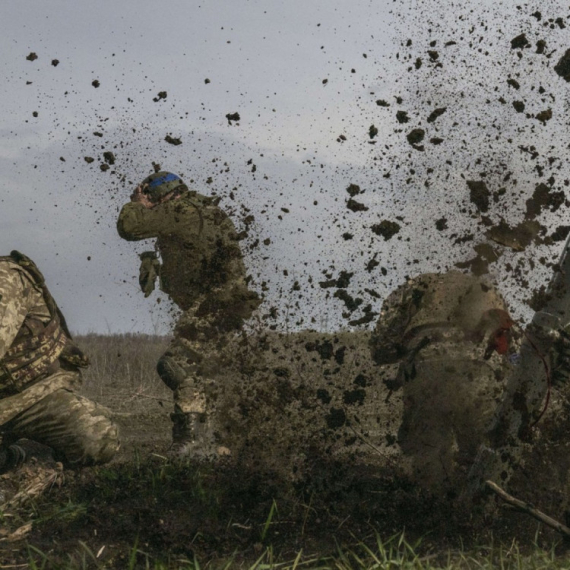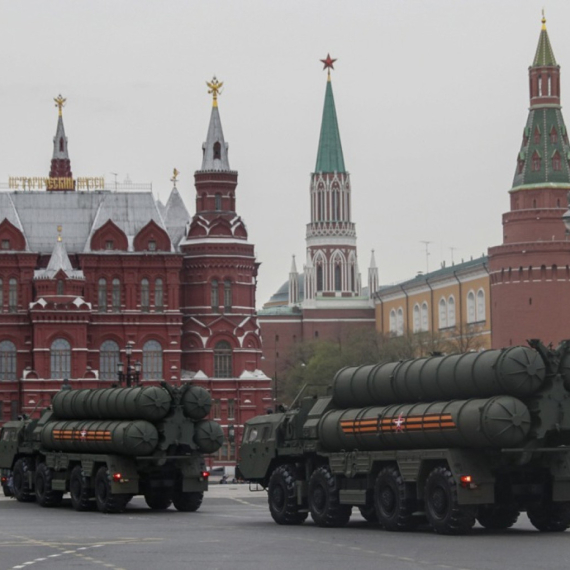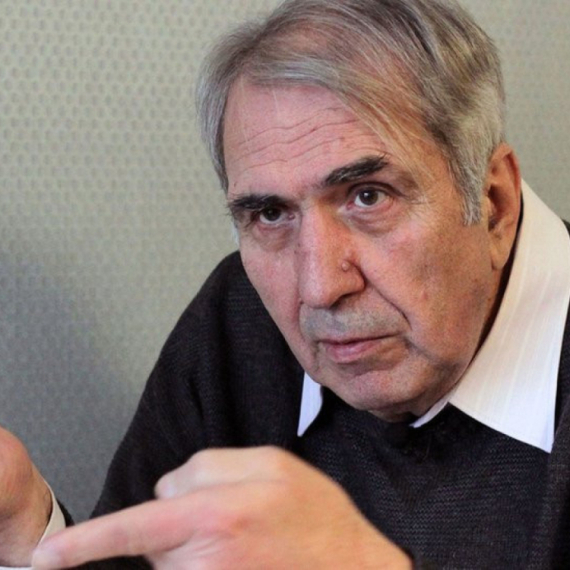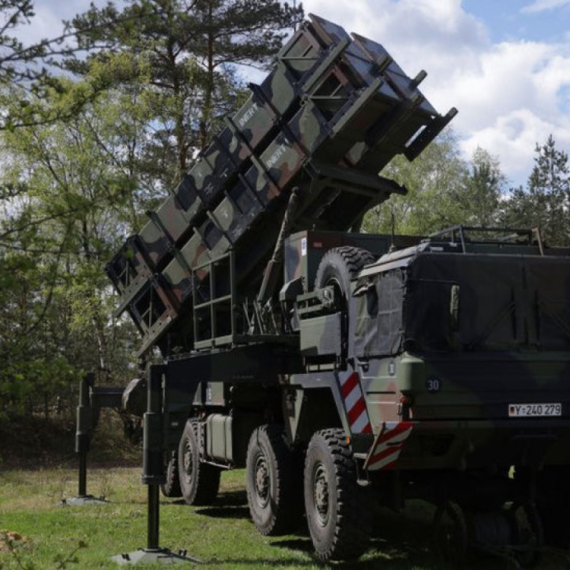"Serbs should take part in Kosovo vote"
The head of the EU Planning Team for Kosovo says Belgrade should encourage Serbs to take part in Kosovo elections.
Monday, 10.09.2007.
09:34

The head of the EU Planning Team for Kosovo says Belgrade should encourage Serbs to take part in Kosovo elections. Casper Klynge said Monday that the EU had suggested this to Belgrade, because it was important that Serbs had elected politicians to represent them. "Serbs should take part in Kosovo vote" Klynge, whose task is to lay the groundwork for an EU mission to Kosovo that would take over from UNMIK, said that a possible decision by Belgrade not to take part in elections "would not affect the lives of people living in Belgrade," but would "complicate" the lives of Serbs in Kosovo. "If Belgrade blocks participation in elections, the victims will be down there [in Kosovo], and not Belgrade. And from a political perspective, boycotting the elections would not be a positive step by the government or Belgrade," he told daily Blic. Klynge said that the EU mission was ready to come to Kosovo at any given moment, but that a status definition and a political decision were needed to launch the mission, because for a mission to enter without status "is not an option" that appeals to Brussels. "That way, Kosovo won’t have access to international organizations, it won’t be able to develop its economy, it won’t be able to become a part of Europe, and there is a danger that it could become a breeding ground for criminals. We need to find a solution that will define Kosovo’s status," the EU representative added. However, he went on to say that he did not believe there was much chance of continuing talks between Belgrade and Pristina beyond the 120 day deadline, December 10, when the Contact Group Troika was due to submit its report on the talks. "If Belgrade and Pristina reach an agreement, and that’s what we all want, that will be the best solution. If that doesn’t happen, then we’ll have to find another solution," said Klynge. He repeated that the EU hoped that a solution to the Kosovo problem would be adopted in the UN Security Council. " We see the Kosovo problem as an EU problem and as something that has to be resolved for the people that live in Kosovo, in the region, and throughout Europe. If, for some reason, no resolution is adopted, we have to find another way for the EU to get involved in Kosovo. That is when our legal team will start considering other options," asserted Klynge. "A Security Council resolution gives us the power to protect minority human rights, to protect the Kosovo Serbs. Without that, internal problems would develop in Kosovo, because there would be no legal basis for activity," he concluded. Svilanovic: EU membership doesn’t depend on Kosovo Serbian accession to the EU does not depend on resolving the Kosovo status problem, nor can it be, given the lack of unity on the matter within the union, says Goran Svilanovic. Svilanovic, a member of the Foreign Affairs Ministry’s Council for International Relations, in response to comments made by Head of the EU Planning Team Casper Klynge, said that Klynge was preparing a mission of 1,850 people, of which 1,400 were police officers, to come to Kosovo and that "there is no political blackmail in his mandate." Accession to the EU cannot depend on the resolution of the Kosovo question, because the only united position within the union is that, "We accept the Ahtisaari Plan if it is passed in the Security Council," and that condition has not been met, Svilanovic told B92 radio’s program, Kaziprst. He added that if the U.S. recognized Kosovo independence, it still would not be final, because "in this part of the world what matters is the EU’s opinion." However, if, at the end of the negotiating process in the event of no agreement being reached, the Albanians declare independence, that would, according to the diplomat, be the beginning of a process whose outcome would be unknown. The Kosovo Albanians are behaving as if they have received signals from Washington that they can get independence once the talks have ended, added Svilanovic. "There is information to suggest that such an outcome is possible," and that is a result of "Belgrade’s harsh rhetoric," he said, in response to a question about why Belgrade had reacted to statements made by U.S. State Department official Kurt Walker that the U.S. could recognize independence, but had not reacted to similar statements made by President George Bush.
"Serbs should take part in Kosovo vote"
Klynge, whose task is to lay the groundwork for an EU mission to Kosovo that would take over from UNMIK, said that a possible decision by Belgrade not to take part in elections "would not affect the lives of people living in Belgrade," but would "complicate" the lives of Serbs in Kosovo."If Belgrade blocks participation in elections, the victims will be down there [in Kosovo], and not Belgrade. And from a political perspective, boycotting the elections would not be a positive step by the government or Belgrade," he told daily Blic.
Klynge said that the EU mission was ready to come to Kosovo at any given moment, but that a status definition and a political decision were needed to launch the mission, because for a mission to enter without status "is not an option" that appeals to Brussels.
"That way, Kosovo won’t have access to international organizations, it won’t be able to develop its economy, it won’t be able to become a part of Europe, and there is a danger that it could become a breeding ground for criminals. We need to find a solution that will define Kosovo’s status," the EU representative added.
However, he went on to say that he did not believe there was much chance of continuing talks between Belgrade and Priština beyond the 120 day deadline, December 10, when the Contact Group Troika was due to submit its report on the talks.
"If Belgrade and Priština reach an agreement, and that’s what we all want, that will be the best solution. If that doesn’t happen, then we’ll have to find another solution," said Klynge.
He repeated that the EU hoped that a solution to the Kosovo problem would be adopted in the UN Security Council.
" We see the Kosovo problem as an EU problem and as something that has to be resolved for the people that live in Kosovo, in the region, and throughout Europe. If, for some reason, no resolution is adopted, we have to find another way for the EU to get involved in Kosovo. That is when our legal team will start considering other options," asserted Klynge.
"A Security Council resolution gives us the power to protect minority human rights, to protect the Kosovo Serbs. Without that, internal problems would develop in Kosovo, because there would be no legal basis for activity," he concluded.
Svilanović: EU membership doesn’t depend on Kosovo
Serbian accession to the EU does not depend on resolving the Kosovo status problem, nor can it be, given the lack of unity on the matter within the union, says Goran Svilanović.Svilanović, a member of the Foreign Affairs Ministry’s Council for International Relations, in response to comments made by Head of the EU Planning Team Casper Klynge, said that Klynge was preparing a mission of 1,850 people, of which 1,400 were police officers, to come to Kosovo and that "there is no political blackmail in his mandate."
Accession to the EU cannot depend on the resolution of the Kosovo question, because the only united position within the union is that, "We accept the Ahtisaari Plan if it is passed in the Security Council," and that condition has not been met, Svilanović told B92 radio’s program, Kažiprst.
He added that if the U.S. recognized Kosovo independence, it still would not be final, because "in this part of the world what matters is the EU’s opinion."
However, if, at the end of the negotiating process in the event of no agreement being reached, the Albanians declare independence, that would, according to the diplomat, be the beginning of a process whose outcome would be unknown.
The Kosovo Albanians are behaving as if they have received signals from Washington that they can get independence once the talks have ended, added Svilanović.
"There is information to suggest that such an outcome is possible," and that is a result of "Belgrade’s harsh rhetoric," he said, in response to a question about why Belgrade had reacted to statements made by U.S. State Department official Kurt Walker that the U.S. could recognize independence, but had not reacted to similar statements made by President George Bush.



















































Komentari 17
Pogledaj komentare